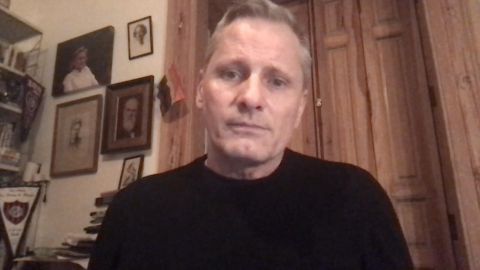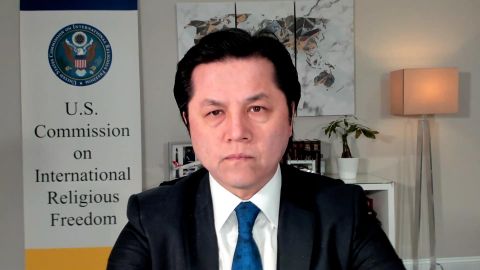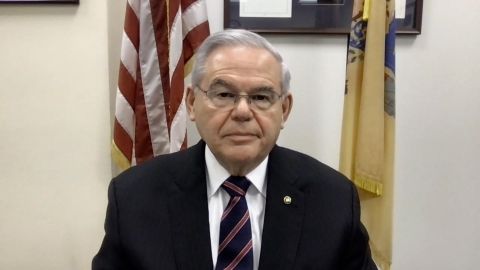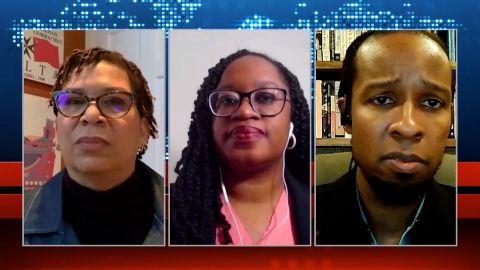Read Transcript EXPAND
CHRISTIANE AMANPOUR: You wrote an important piece in “The New York Times,” an opinion piece, talking about goods that are being made — and I brought this up with the senator — through forced labor, which are opening and ending up on U.S. markets. And we have pictures from Chinese state television which shows some of these factories on things like wigs, face mask, clothing, electronics, and the U.S. customs have seized 13 tons of wigs, as we can see in this picture, in the summer. China, of course — we need to say this — denies forced labor. They call them poverty alleviation programs. The centers, they say, are voluntary and provide vocational training. They also say as part of the, I guess, Uyghur deradicalization program. Tell me, from your experience, what is going on inside these factories.
NURY TURKEL, U.S. COMMISSION ON INTERNATIONAL RELIGIOUS FREEDOM: These factories has been something new to the international community, but it has been going on — the type of forced labor that I described in my piece has been going on as long as I can remember. I grew up in a Uyghur heartland, Kashgar, watching, witnessing Uyghur villagers taken to the fields to pick cotton and build irrigation system by this very entity, by the way, known as Xinjiang Production and Construction Corps, which the United States government sanctioned under the global Magnitsky Act. This particular entity is also responsible for polluting global economic system with the tainted products produced by Uyghur slaves, modern slaves. That includes PPE, Christiane. Think about that. Think about it for a minute that even PPEs, as the world is handling and dealing with this health care crisis, were produced by Uyghur slaves. Think about the beauty products that the Chinese government, Chinese entities promoting in African-American community has black gold made of Uyghur prisoners’ hair. So, people always say that history is repeating itself, but we are allowing history to repeat itself. Today, in the 21st century, the international community has failed miserably to address this modern-day slavery, address this modern-day technology-supported genocide. And it’s also — it is almost unconscionable for European leaders, particularly, in light of the fact that they know how it ends when a government, where a bad actor goes after a religious minority, ethnic minority. The international community has seen this movie before. They never again ring shallow, simply because international community have been buying into — buying — been staying silent under the — China’s pressure. And, also, some of the responses had been tepid and meandering. When you listen to governments — I used to say, oh, such and such a leader expressed concern. Expressing concern is not the same as taking action. They need to stop looking the other way.
About This Episode EXPAND
Bob Menendez; Nury Turkel; Viggo Mortensen; Ibram X. Kendi; Keisha N. Blain
LEARN MORE



